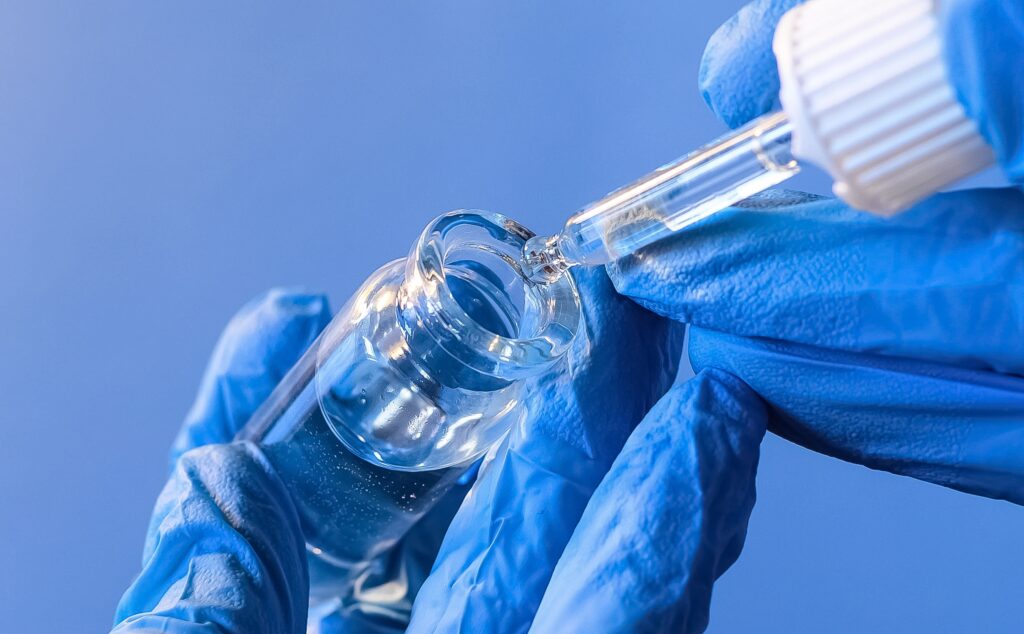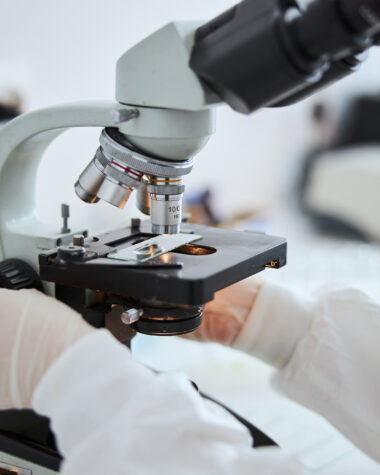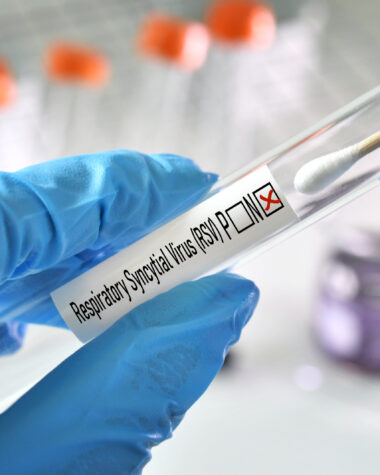Apimeds Pharmaceuticals US Inc. (NYSE:APUS) is a clinical-stage biopharmaceutical company built on a mission to transform pain management through non-opioid, biologic-based innovation. The company has established itself as a pioneer in the development of therapeutic solutions derived from natural bioactive compounds, with a primary focus on its lead investigational product, Apitox, a purified honey-bee-venom–based biologic designed to treat osteoarthritis of the knee. Apimeds entered the public markets through its listing on the NYSE American under the ticker APUS, marking a significant evolution from a science-driven research organization into a growth-oriented biotech platform with increasing visibility across the pain-treatment and biologics landscape. Its foundation combines clinical expertise, leadership in non-opioid drug development, and a commitment to changing how chronic pain is approached in a healthcare environment increasingly concerned with the risks of traditional opioid therapies.
The company’s background reflects a deep emphasis on scientific discovery and the pursuit of alternative therapies that can offer meaningful improvement in both safety and efficacy for patients suffering from chronic pain. Early in its formation, Apimeds recognized the potential of bee-venom peptides such as melittin and apamin to target inflammation and pain pathways in ways conventional pharmacology had not fully explored. Over years of refinement, the company advanced this concept into Apitox, progressing through preclinical and clinical work to become one of the most distinctive biologic candidates in development for osteoarthritis. This focus on biologically derived, non-addictive therapeutics positioned Apimeds as a unique entrant in a pain-management market dominated for decades by opioids, NSAIDs, and steroid injections.
Beyond its scientific foundation, Apimeds evolved strategically by building an ecosystem that merges innovation, human insight, and translational development. A defining element of its corporate background is the creation of the ai² Futures Lab, a forward-looking platform designed to evaluate early-stage, shelved, or underdeveloped pharmaceutical assets. Unlike traditional biotech companies that rely solely on in-house R&D, Apimeds established a model that blends actual human intelligence, structured business analysis, and data-informed inquiry to identify new therapeutic opportunities. The platform deepened its capabilities as Apimeds formed collaborations with universities such as the University of Alabama, the University of San Diego, and most recently the University of Oregon. Student teams, guided by Apimeds mentors, analyze real therapeutic candidates and market opportunities, creating a scalable and cost-efficient engine for pipeline expansion. These partnerships solidified the company’s identity as both an innovation enabler and a talent development catalyst within the biopharmaceutical ecosystem.
The involvement of academic collaborators and multidisciplinary student teams became a hallmark of Apimeds’ approach to expanding its pipeline beyond Apitox. This unique academic-industry synergy contributes to a continuous flow of insights, intellectual diversity, and analytical rigor, strengthening the company’s capacity to assess market viability, intellectual property positioning, and scientific value across potential new assets. The ai² Futures Lab, therefore, became a cornerstone of Apimeds’ background as a biotech platform capable of generating sustained innovation even with the capital efficiency typically required of emerging public companies.
Apimeds also built a corporate culture centered on leadership, scientific collaboration, and the belief that non-opioid pain management must evolve through a combination of biologic solutions and human-powered innovation. Its executive team, including leaders with backgrounds in business development, research, and strategic scaling, reflect the company’s intent to grow beyond a single-asset pipeline and position itself as a long-term contender in the non-opioid therapeutics field. This focus on leadership excellence and industry-academic integration supports Apimeds’ broader goal of redefining how biopharma companies identify, develop, and progress novel therapeutic programs.
Today, Apimeds Pharmaceuticals stands as a public biopharmaceutical company with a distinctive scientific origin, a growing innovation ecosystem, and a late-stage clinical candidate targeting one of the world’s most prevalent chronic conditions. Its journey from a research-driven developer of bee-venom–based therapeutics to a publicly traded company with a structured discovery architecture underscores its commitment to redefining pain management and expanding the future of biologic-based therapies. With Apitox progressing through clinical development and the ai² Futures Lab broadening its strategic reach, Apimeds has established itself as a company built on scientific ingenuity, market awareness, and a sustained dedication to improving patient outcomes through transformative, non-opioid treatment options.
Apimeds’ Expansion of its ai² Futures Lab Signals a New Era of Biopharma Innovation
Apimeds Pharmaceuticals US Inc. (NYSE:APUS) has reached an important inflection point with its announcement of a major expansion of the Apimeds ai² Futures Lab program through a new partnership with the University of Oregon’s Lundquist College of Business. This strategic collaboration is far more than an academic engagement; it represents a material strengthening of Apimeds’ innovation engine and reinforces the company’s long-term strategy to build a scalable, repeatable model for discovering novel therapeutic assets. The ai² Futures Lab, positioned as a hybrid discovery and leadership accelerator, continues to expand into a multi-institutional ecosystem that integrates human insight, applied analytics, business intelligence, and AI-supported research. For a clinical-stage biopharmaceutical company like Apimeds, this type of infrastructure creates a durable competitive advantage that most emerging biotechs never achieve.

CHECK THIS OUT: Corcept (CORT) Skyrockets 1,534% in 10 Years and Immuneering (IMRX) Reports 86% 9-Month Survival in Pancreatic Cancer.
A Platform Designed to Identify High-Potential Therapeutic Assets
ai² Futures Lab represents a unique concept in biotech value creation. Unlike traditional R&D departments that focus exclusively on in-house science, Apimeds has built a program that evaluates shelved pharmaceutical assets, identifies overlooked opportunities, and leverages human-driven analytical frameworks to determine commercial viability. Students and faculty at the University of Oregon will work directly with Apimeds mentors to analyze early-stage or neglected therapeutic IP, including market potential, regulatory feasibility, competitive dynamics, and clinical differentiation. This provides Apimeds with a continuous flow of new data, fresh perspectives, and low-cost diligence capabilities that can feed future pipeline additions. By expanding its partnerships to institutions like the University of Oregon, University of Alabama, and University of San Diego, Apimeds is effectively crowdsourcing strategic insight from diverse academic talent pools, creating an engine capable of identifying hidden-value assets in the biopharma space.
Strengthening Organizational Capability Through Talent and Insight
A bullish view of APUS hinges on understanding how transformative this ecosystem can be. CEO Erik Emerson’s strong support of the partnership underscores a broader corporate philosophy rooted in intellectual diversity, mentorship, and sustainable innovation. By reinforcing the “actual intelligence” aspect of the ai² platform—human judgment informed by data—the company differentiates itself from peers who rely solely on algorithmic decision-making. In the increasingly competitive landscape of AI-enabled biotech, Apimeds’ blended human+AI strategy produces sharper insights, fewer false positives, and faster iteration cycles for evaluating new therapeutic opportunities. This system has the potential to materially reduce R&D risk while increasing the probability that Apimeds will identify commercially viable biologic-based therapies beyond its lead product, Apitox.
A Growing Academic Network that Expands Apimeds’ Innovation Perimeter
The University of Oregon now becomes the third institution to join the ai² Futures Lab collaborative network. As this network expands, Apimeds strengthens its geographic footprint, diversifies its analytical pipeline, and builds a national presence across leading academic programs in business, health innovation, and bioscience strategy. What distinguishes Apimeds from other small-cap biotech companies (many of which remain siloed in one laboratory or research partnership) is its capability to scale intellectual capital. Every team working within the ai² network is evaluating real therapeutic candidates with real commercial viability, which compounds Apimeds’ strategic momentum and reinforces the long-term sustainability of its innovation engine.
Apitox: A Late-Stage Biologic Positioned to Disrupt Non-Opioid Pain Management
A key pillar of any bullish thesis for APUS is its lead program, Apitox, a biologic-based, non-opioid therapy derived from purified honey-bee venom. Apitox has advanced into late-stage clinical development focused on osteoarthritis of the knee—one of the largest pain markets in the United States. With millions of patients suffering from chronic joint degeneration, the need for effective non-opioid, non-steroidal, and non-surgical treatments has never been greater. Apitox bypasses traditional opioid pathways by targeting inflammation and pain through natural bioactive peptides found in bee venom, including melittin and apamin, which exhibit anti-inflammatory and analgesic properties. This mechanism positions Apitox as a differentiated therapy, especially in an ecosystem increasingly hostile toward opioids and narcotics.
The Pain Management Market Offers Major Upside for APUS Stock
The global osteoarthritis market exceeds $11 billion annually and continues to expand as the population ages. Current treatments often fail to meet patient needs, leaving substantial market whitespace. Apimeds is not attempting to compete with conventional pain medications but rather introducing a novel modality that can offer longer-lasting relief, reduced systemic side effects, and fewer safety concerns compared to opioids or steroids. A late-stage biologic with potential for disease-modifying properties offers enormous valuation upside. Successful clinical results for Apitox could position Apimeds as a leading player in next-generation non-opioid pain solutions, which aligns strongly with investor interest in safer, biologic-based pain therapeutics.
Strategic Positioning Through Non-Opioid Biologic Therapies
The FDA and healthcare systems are actively pushing the industry toward non-opioid technologies. Apimeds’ focus aligns perfectly with this policy environment, giving Apitox a regulatory tailwind that many competitors lack. Furthermore, biologic-based pain therapies historically attract premium pricing, high margins, and strong reimbursement support due to the severity of conditions they target. Investors seeking exposure to pain-management therapeutics with lower risk profiles than opioid manufacturers will naturally consider APUS stock as an emerging leader in this niche.
ai² Futures Lab as a Long-Term Pipeline Generator
A major reason Apimeds earns a bullish rating is that it is no longer a single-asset biotech. With ai² Futures Lab functioning as a pipeline accelerator, Apimeds can systematically review multiple shelved assets and pursue only those with strong commercial and clinical potential. This mitigates risk, diversifies the company’s future therapeutic portfolio, and ensures a steady flow of innovation independent of any single product outcome. Unlike most early-stage biotech firms that rely on one candidate to justify valuation, Apimeds is building a platform that can produce multiple candidates over time while requiring far less capital than traditional R&D discovery models.
A Strengthened Public Market Position Under NYSE: APUS
Apimeds’ listing on the NYSE American exchange positions the company for institutional visibility, analyst coverage, and expanded access to long-term capital. Public-market credibility is a pivotal advantage when attracting strategic partners, initiating licensing discussions, or raising future growth capital. Investors tend to reward small-cap biopharma companies that demonstrate unique scientific mechanisms, diversified innovation engines, and the ability to scale via partnerships—all qualities that Apimeds has now shown with consistency.
A Bullish Outlook Supported by Innovation, Validation, and Future Catalysts
Taken together, Apimeds Pharmaceuticals (NYSE: APUS) offers a compelling bullish thesis built around three major drivers: the advancement of Apitox as a late-stage biologic targeting one of the largest and most underserved pain markets; the expansion of the ai² Futures Lab into a national, multi-university innovation network capable of systematically generating new therapeutic candidates; and the strong leadership vision that blends human judgment, AI-supported analytics, and academic collaboration into a scalable biotech innovation model. With strategic partnerships growing, a flagship late-stage product in development, and an intellectual ecosystem capable of identifying additional high-value assets, Apimeds is positioned for long-term growth, market expansion, and potential major valuation uplift as new milestones are achieved.
READ ALSO: Tiziana (TLSA) Surges 143% in 2025 and Immuneering (IMRX) Reports 86% 9-Month Survival in Pancreatic Cancer.








